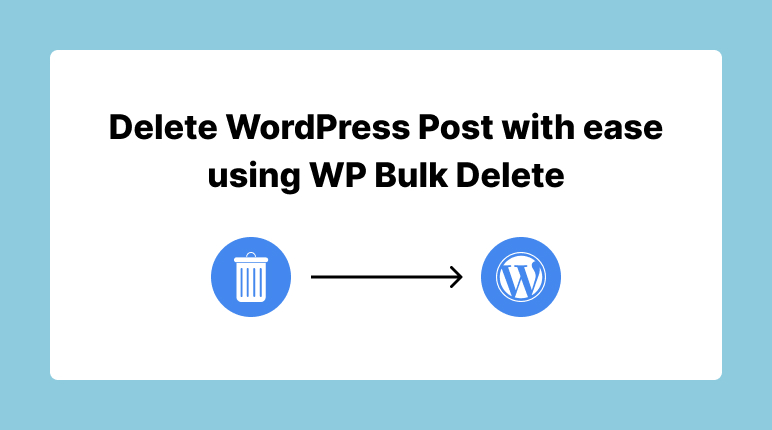Managing a WordPress site sometimes requires bulk deletion of posts, while keeping a few important ones. Instead of manually deleting posts one by one, you can automate the process using code. In this guide, we’ll explore how to delete all WordPress posts except specific ones using PHP and WP CLI.
Why Bulk Deleting Posts Might Be Necessary?
- Cleaning up test or demo content.
- Resetting a blog while keeping important posts.
- Removing outdated content in bulk.
- Migrating content while excluding specific articles.
Instead of using plugins, a custom script or WP CLI command provides more control and efficiency.
Method 1: Using PHP (WP_Query & wp_delete_post)
You can add the following function to your functions.php file or execute it through a custom plugin or a code snippet plugin.
function delete_all_posts_except($exclude_ids = array()) {
if (empty($exclude_ids)) {
$exclude_ids = array(); // Ensure it's an array
}
$args = array(
'post_type' => 'post', // Change to 'any' to delete all post types
'post_status' => 'any',
'posts_per_page' => -1,
'post__not_in' => $exclude_ids,
);
$query = new WP_Query($args);
if ($query->have_posts()) {
while ($query->have_posts()) {
$query->the_post();
wp_delete_post(get_the_ID(), true); // True for force delete
}
}
wp_reset_postdata();
}
// Call function with post IDs you want to exclude
delete_all_posts_except(array(10, 20, 30)); // Replace with your actual post IDs
- post_type: Defines the type of posts (default is
post, change toanyfor all types). - post__not_in: Excludes the specified post IDs.
- wp_delete_post(): Deletes each post, with
trueforcing permanent deletion (skipping the trash). - wp_reset_postdata(): Cleans up post data after execution.
Method 2: Using WP CLI (Faster & More Efficient)
wp post delete $(wp post list –post_type=post –format=ids | grep -v -E ’10|20|30′) wp post list –post_type=post –format=ids lists all post IDs. grep -v -E ’10|20|30′ excludes the specified post IDs. wp post delete removes all other posts permanently.


